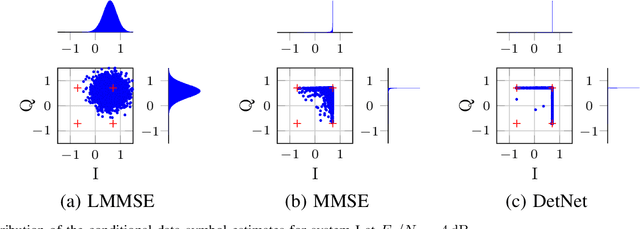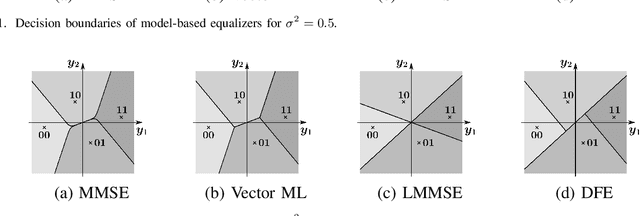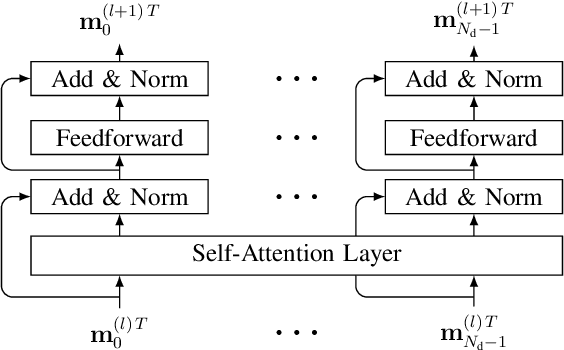Neural Network Approaches for Data Estimation in Unique Word OFDM Systems
Paper and Code
Nov 11, 2022



Data estimation is conducted with model-based estimation methods since the beginning of digital communications. However, motivated by the growing success of machine learning, current research focuses on replacing model-based data estimation methods by data-driven approaches, mainly neural networks (NNs). In this work, we particularly investigate the incorporation of existing model knowledge into data-driven approaches, which is expected to lead to complexity reduction and / or performance enhancement. We describe three different options, namely "model-inspired'' pre-processing, choosing an NN architecture motivated by the properties of the underlying communication system, and inferring the layer structure of an NN with the help of model knowledge. Most of the current publications on NN-based data estimation deal with general multiple-input multiple-output communication (MIMO) systems. In this work, we investigate NN-based data estimation for so-called unique word orthogonal frequency division multiplexing (UW-OFDM) systems. We highlight differences between UW-OFDM systems and general MIMO systems one has to be aware of when using NNs for data estimation, and we introduce measures for successful utilization of NN-based data estimators in UW-OFDM systems. Further, we investigate the use of NNs for data estimation when channel coded data transmission is conducted, and we present adaptions to be made, such that NN-based data estimators provide satisfying performance for this case. We compare the presented NNs concerning achieved bit error ratio performance and computational complexity, we show the peculiar distributions of their data estimates, and we also point out their downsides compared to model-based equalizers.
 Add to Chrome
Add to Chrome Add to Firefox
Add to Firefox Add to Edge
Add to Edge